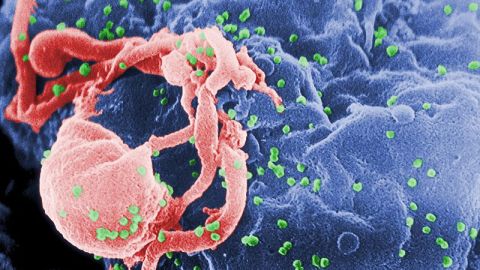Scientists Expect to Test HIV Vaccine Before 2016

What’s the Latest Development?
Researchers at Oregon Health and Science University hope to begin testing an HIV vaccine on humans in just a few years, thanks to an innovative approach which helps the body’s immune system target the evasive virus. “The researchers found that cytomegalovirus or CMV, a common virus already carried by a large percentage of the population, may hold the key. Their studies in the non-human primate model of HIV, called SIV, found that a modified version of CMV engineered to express SIV proteins generates SIV-specific T cells that recognize three-fold as many SIV peptides as T cell generated by conventional vaccines and SIV itself.”
What’s the Big Idea?
To create a vaccine against HIV, scientists need to activate the body’s immune system against the disease, specifically so-called T cells which work as sentries to detect and destroy virus-infected cells. T cells, however, are frugal in the number of different viral peptides they can recognize at one time. “This is a problem for control of HIV, which is able to able change its peptides and thus escape T cells responses that do not target the relatively few functionally critical peptides that can’t change without debilitating the virus. In the vast majority of HIV infections, the few viral peptides recognized by T cells are not the vulnerable ones, and the virus escapes.”
Photo credit: Shutterstock.com





